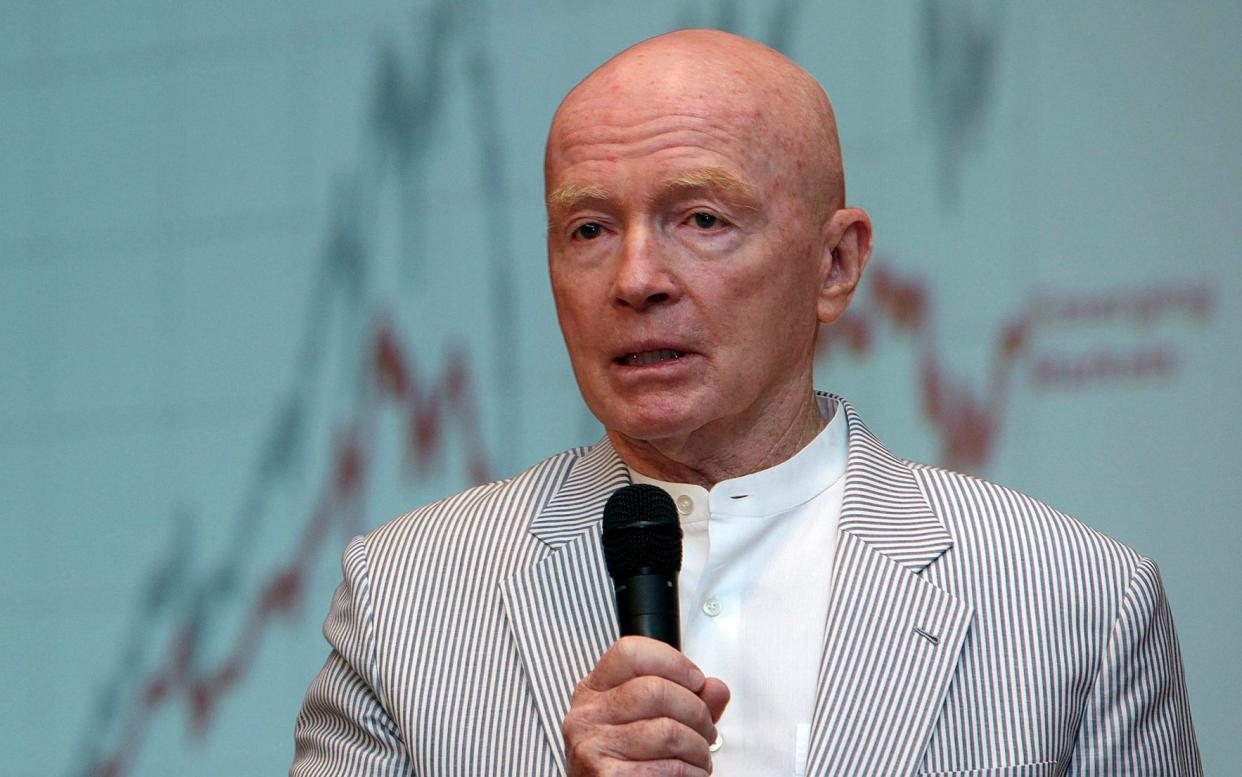I’ve been investing in emerging markets for more than 30 years. Here’s what I’ve learnt

- Oops!Something went wrong.Please try again later.
Mark Mobius is synonymous with emerging markets investing and has a reputation as one of the most successful and influential money managers of the past 40 years.
In 2018, he founded Mobius Capital Partners with two former colleagues. Before that he spent more than three decades at Franklin Templeton Investments. Under his leadership, the emerging markets group’s assets under management grew from $100m to $50bn. He has also contributed to developing international policies for emerging markets, won numerous industry awards and written a dozen books, including The Inflation Myth and The Wonderful World of Deflation.
Reflecting on my journey since 1987, when Sir John Templeton entrusted me with managing one of the world’s pioneering emerging market funds, it feels surreal. Back then, “emerging markets” was a relatively new concept.
We began with a modest fund of $100m, limited to investing in just six markets. By the time of my departure from Franklin Templeton in 2018, the landscape had transformed dramatically. The assets had ballooned to $40bn in more than 50 emerging market funds, spanning investments across 70 countries.
This phenomenal growth speaks volumes. It underscores the dynamic and rapidly evolving nature of emerging markets. Now, 37 years later, they continue to offer a kaleidoscope of opportunities. It’s testament to how these markets have become integral to the global economic fabric, reshaping investment landscapes worldwide.
One of the most important lessons I’ve learnt as an emerging market investor is that you can never rely on just the numbers or printed analysis.
Successful investment in emerging markets hinges not just on quantitative data but on a deep understanding of the human element behind the businesses. It’s about the people steering these companies, their vision, their drive.
True insight comes from direct engagement – meeting these leaders, understanding their ethos and grasping the cultural and social dynamics that shape their decisions.
This human-centric approach has been instrumental in navigating the complex and vibrant landscape of emerging markets.
In emerging markets, the role of a company’s management is often more pronounced, thanks to the unique challenges and opportunities these markets present.
The people behind a company are pivotal in navigating the complexities of rapidly changing economic, political and social landscapes. Their vision, expertise, adaptability and integrity can significantly influence a company’s trajectory.
The integrity of the management team and its commitment to strong corporate governance are especially important in markets where regulatory frameworks may be less developed.
Ethical leadership and transparent business practices build investors’ confidence and can lead to more sustainable investment returns.
A striking example from my early days comes to mind. We had invested in a Brazilian department store, where year after year the numbers looked promising. However, a sudden downturn revealed a major embezzlement by shareholders. Seeking redress, we were astonished to discover that the chief accountant we’d trusted was now a director at the regulatory authority overseeing our case.
This incident underscored the importance of not just understanding the numbers but also knowing the people behind them and the systems they operate within. For this reason I put a lot of emphasis on company culture, alongside environmental, social and governance (ESG) factors when I select stocks.

Another vital lesson I’ve learnt is the necessity to look beyond investing in indices. Often, when people talk about emerging market investing, they focus on the performance of an index. However, this approach can be misleading and does not provide a complete picture.
Firstly, the term “emerging markets” encompasses not just one nation but a diverse amalgamation of different countries. Each of these countries has its unique economic dynamics, cultural nuances and political landscapes.
To lump them together under a single index is to oversimplify the rich tapestry of opportunities and challenges they present. The diversity within these markets is staggering – from the bustling streets of São Paulo to the tech hubs of Bangalore, each market has its own story and potential.
Secondly, the representation within major indices such as the MSCI Emerging Markets index further skews perception. For instance, almost 30pc of that index consists of Chinese companies.
While China’s economic prowess is undeniable, such a heavy weighting can overshadow the potential of other emerging markets. This imbalance can lead investors to overlook opportunities in smaller yet rapidly growing economies.
Besides, the categorisation of countries such as China as emerging markets is becoming increasingly debatable. With its colossal economy and significant global influence, China today stands in a league of its own, different in many ways from the traditional concept of an emerging market.
This raises important questions about the evolving nature of these classifications and their relevance in the current economic landscape.
The key lesson for investors is to delve deeper, beyond the surface-level data presented by indices. It involves understanding the unique economic drivers, political stability and growth potential of each market individually. Personal engagement, on-site visits and thorough research are indispensable in this process.
Reflecting on these nuances has been crucial in shaping my investment philosophy. It’s about embracing the complexity and diversity of emerging markets, understanding that each has its own rhythm and requires a tailored approach.
This perspective not only enriches the investment process but also aligns more closely with the dynamic reality of these vibrant economies.
Recommended
How to invest like the best (and the strategies to avoid)

